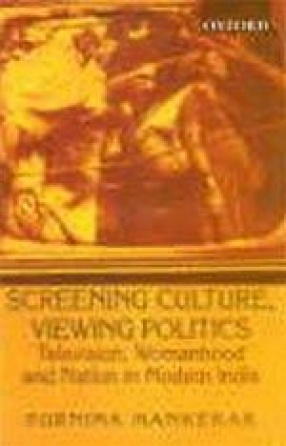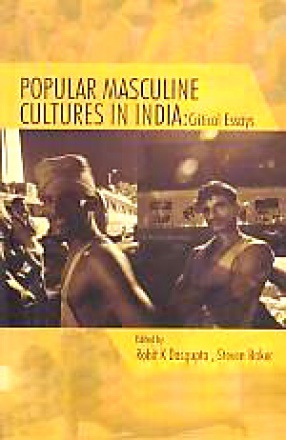"In Screening Culture, Viewing Politics Purnima Mankekar presents a cutting edge ethnography of television viewing in India. Mankekar focuses on the responses of upwardly mobile, middle-class urban women to state-sponsored entertainment serials (including Ramayan, Mahabharat and Hum Log). She demonstrates how television in India has profoundly shaped women’s place in the family, community and nation and how it has played a crucial role in the realignment of class, caste, consumption, religion and politics. Mankekar examines ‘entertainment’ narratives and advertisements designed to convey particular ideas about the nation. Organizing the study around recurring narrative themes in TV programmes–Indian womanhood, family, community, constructions of historical memory, development, integration, and sometimes violence–she dissects both the messages and her New Delhi subjects’ perceptions of and reactions to these messages. Her ethnographic analysis reveals the texture of women’s daily lives, social relationships and everyday practices. Throughout her study she remains attentive to the tumultuous historical and political context of the integrationalist messages in TV programmes, the cultural diversity of the viewership, and her own role as an ethnographer. In an enlightening epilogue the author describes how understandings of national sovereignty and gender were again reconstituted in response to satellite television and transnational programming in India since the 1990s. This compelling read on the crucial role of TV in the production of postcolonial ideologies of nation, gender, and family is essential for all those intrigued by the role and impact of television in India, as well as for students and scholars of media and film studies, culture studies, gender studies, sociology and anthropology."
The Impact of Christian Mission on the Socio-Cultural Life of the Bhil Tribe in Rajasthan
Through their mission, work ...
$9.00
$10.00





There are no reviews yet.